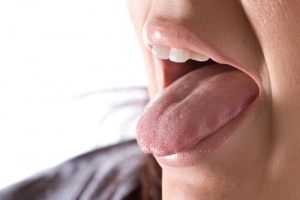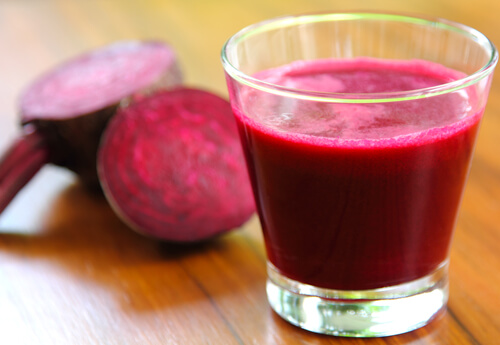Do You Wake Up With a Bitter Taste in Your Mouth?


Written and verified by psychologist Valeria Sabater
This may have happened to you once: you wake up in the morning with an acidic or bitter taste in your mouth. Why does this happen?
It is more common than you might think, and although it is nothing serious, sometimes it may indicate a reality in your body that you should keep in mind, such as a poor diet or an accumulation of bacteria. We will explain below for your peace of mind.
The simple reality is that almost all of us wake up with a strange flavor in our mouths.
Your tongue accumulates a series of bacteria stored over night that cause bad breath, something that is uncomfortable especially when you wake up next to your significant other.
It is normal, however, doctors say that sometimes it can happen because of some kind of disease. So, it is worth knowing why.
Causes of bad morning breath

Bacteria
This acidic and bitter taste is usually produced by anaerobic bacteria which are behind the tongue and release small secretions of sulphur. If you don’t have this uncomfortable feeling during the day, it is because your saliva makes them disappear or destroys them.
But, during the night, saliva production drastically reduces and these elements remain on your tongue which gives you this unpleasant taste. It is something that happens to everyone.
Sinusitis
If you suffer from sinusitis, it tends to cause a curious effect. your nasal mucus is more sensitive and therefore lets small secretions fall.
Nasal mucus is rich in proteins and is a good food for the same bacteria that we mentioned before. They multiple and appear and as a result continue producing more sulphur which causes this bad flavor in your mouth.
Esophagus
You may suffer from acidity in your esophagus, which may be inflamed. Digestion becomes slower and food is harder to digest. This acidity feeds the bacteria of your tongue, and thus the flavor will be especially acidic.
See also: The Best Natural Remedies to Help Detox Your Liver
Liver problems
You already know that your liver has an essential function in cleansing your body of toxins, harmful and toxic elements, besides performing other special mechanisms in the metabolization of enzymes.
But it can happen suddenly, there may be some problem or you may simply need to cleanse. One of these symptoms is precisely this bitter taste in the morning.
Jaundice
Jaundice happens if you have a problem when metabolizing bilirubin, a disfunction that is also associated with your liver that causes changes in the red blood cells which causes a series of problems in your body.
The most evident symptoms are a yellow skin color as well as a bitter taste in your mouth that is stronger in the morning.
A remedy to prevent bitter taste in your mouth

- Start your day by eating a garlic clove on an empty stomach. If you are consistent and remember to do it everyday, you will definitely benefit from the best natural detoxifier that exists. Don’t hesitate to try it.
- A detoxing juice for dinner. Remember this simple recipe that, for your well-being, should be eating for dinner for at least 8 days in a row a month. A beet, a garlic clove, juice from half a lemon, a sprig of parsley, and a teaspoon of honey.Put all of the ingredients in the blender and you will get a well-mixed juice. It will help you cleanse your body, eliminate toxins and bacteria, and you will wake up with a better taste in your mouth.
All cited sources were thoroughly reviewed by our team to ensure their quality, reliability, currency, and validity. The bibliography of this article was considered reliable and of academic or scientific accuracy.
- Delanghe G, bollen C, Vvan Steenberghe D, y feenstra L (1998). Halitose, foetor ex
ore. Nederlands Tijdschrift Tandheelkunde 105, 314-317. - Iwakura M, Yasuno Y, Shimura M, y Sakamoto S (1994). Clinical characteristics of halitosis: differences in two patient groups with primary and secondary complaints of halitosis. Journal of Dental Research 73, 1568-1574.
- Klokkevold PR (1997). oral malodor: a periodontal perspective. Journal of the Californian Dental Assocociation 25, 153-159.
- Miyazaki H, Arao M, okamura K, Kawaguchi Y, Toyofuku A, Hoshi K, Yaegaki K. (1999) Tentative classification of halitosis and its treatment needs. Niigata Dental Journal32, 7-11.
- Ratcliff PA y Johnson PW (1999). The relationship between oral malodor, gingivitis and periodontitis. A review.Journal of Periodontology 70, 485-489.
- Schmidt Nf y Tarbet WJ (1978). The effect of oral rinses on organoleptic mouth odor ratings and levels of volatile sulfur compounds. Oral Surgery Oral Medicine Oral Pathology 45, 876-883.
This text is provided for informational purposes only and does not replace consultation with a professional. If in doubt, consult your specialist.








